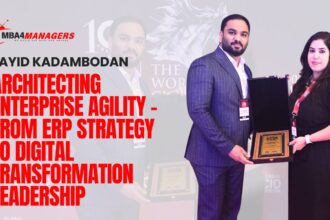As organizations navigate an increasingly dynamic world of work, Chief Human Resources Officers (CHROs) stand at the crossroads of strategy, people, and culture. In 2025, their roles are more pivotal than ever—extending beyond traditional HR boundaries to become champions of transformation, talent architects, and stewards of organizational culture.
Three core areas are taking center stage: culture, talent, and transformation. Here’s how CHROs are reimagining priorities to meet the challenges of a rapidly shifting business environment.
1. Culture as a Strategic Asset
Culture is no longer a “soft” concept—it’s a hard driver of performance, innovation, and retention. In 2025, CHROs are increasingly leveraging organizational culture as a strategic tool to build resilience, foster inclusion, and enhance agility.
Key priorities include:
- Embedding Purpose and Values: CHROs are helping leaders define and reinforce purpose-driven cultures that inspire employees across generations and geographies.
- Hybrid Work Harmony: With remote and hybrid models here to stay, the focus is on creating a connected, inclusive culture that transcends physical space.
- Wellbeing and Psychological Safety: A proactive approach to mental health and work-life balance is now essential. CHROs are investing in tools and practices that support the holistic wellbeing of employees.
Culture is no longer “owned” by HR—it is co-created, but CHROs are leading the charge in aligning it with business goals.
2. Talent Intelligence and Skills-First Strategies
The war for talent has evolved into a race for capabilities. CHROs in 2025 are prioritizing skills-first strategies to match evolving business needs.
What’s changing?
- Skill Mapping and Internal Mobility: Using AI-powered platforms, CHROs are building dynamic talent maps, enabling real-time understanding of current skills, gaps, and growth opportunities.
- Focus on Learning Agility: Traditional credentials are taking a backseat to adaptability, critical thinking, and cross-functional collaboration. Learning and development are now continuous, not episodic.
- Employee Experience as a Differentiator: From onboarding to career progression, CHROs are redesigning the employee journey with personalization and technology to boost engagement and loyalty.
Hiring is no longer just about filling roles—it’s about shaping futures. CHROs are looking within their organizations, emphasizing reskilling and upskilling to future-proof the workforce.

3. Driving Business Transformation Through People
In 2025, CHROs are not only responding to transformation—they are leading it. Whether it’s digital innovation, ESG integration, or global expansion, the success of transformation initiatives hinges on people.
CHROs are:
- Partnering Closely with the C-Suite: They are embedded in boardroom conversations, contributing to business strategy, not just HR plans.
- Championing Diversity, Equity & Inclusion (DEI): DEI is seen not only as a moral imperative but as a business enabler. CHROs are making it measurable, accountable, and integral to transformation agendas.
- Data-Driven Decision Making: Leveraging people analytics, CHROs are providing real-time insights into workforce trends, productivity, and engagement, enabling faster, smarter decisions.
Their role has transformed from administrative to transformational. The CHRO of today is a strategist, technologist, and change agent.
Conclusion: HR at the Helm of the Future
As we progress through 2025, the CHRO’s influence continues to rise. Their focus on culture, talent, and transformation is reshaping organizations for a more agile, human-centric future.
In this new era, successful CHROs will be those who can integrate empathy with analytics, align purpose with performance, and steer transformation while keeping people at the center.
The future of work is being designed today—and CHROs are leading the blueprint.













